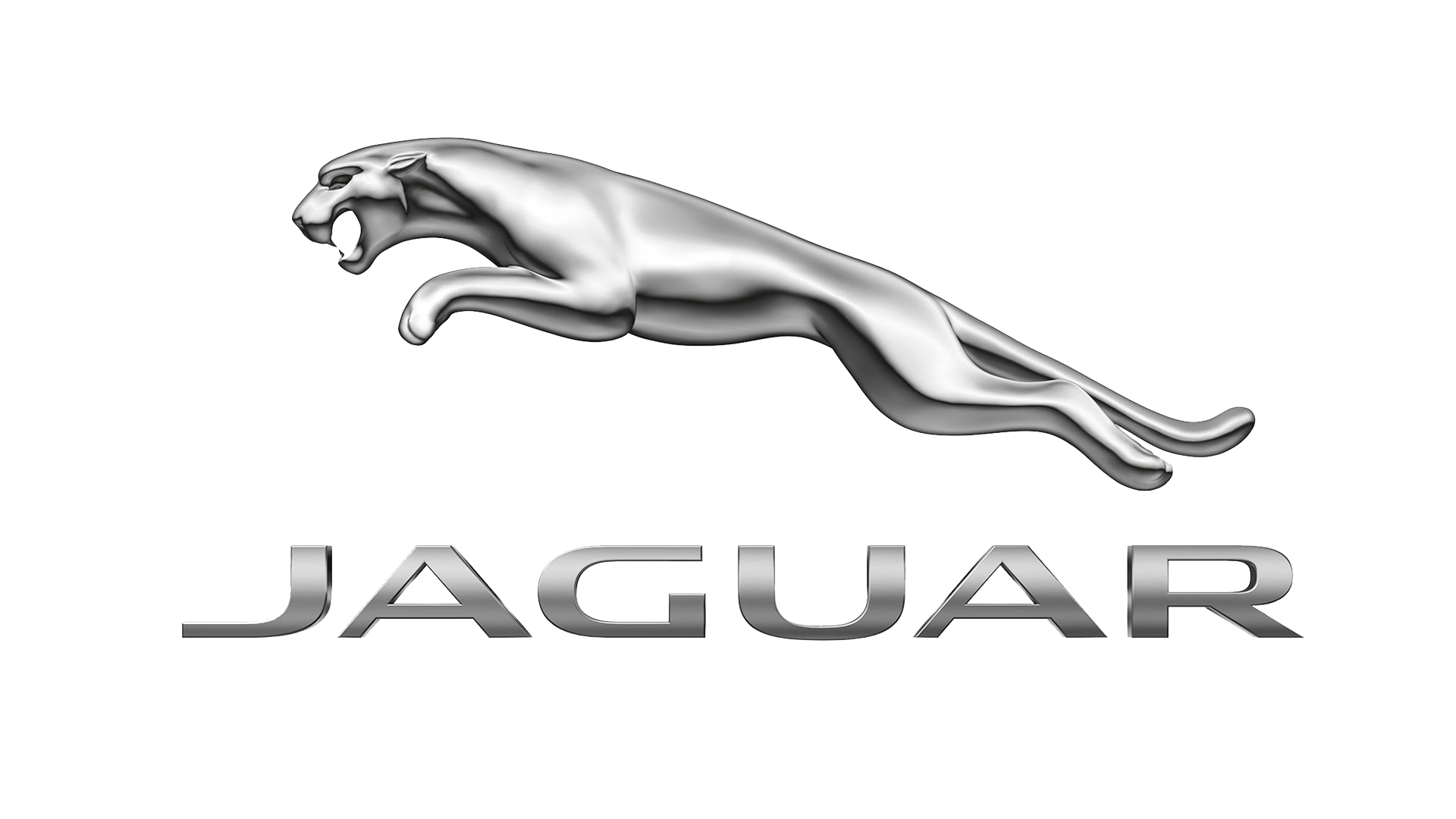When choosing a car, people generally confuse themselves on the matter of German cars vs Japanese cars and which one to choose. Both of the nation thrives on their car manufacturing and gets high praise from fellow car enthusiasts.
People love the style of German cars and sought Japanese cars like the ultimate 'sushi and sauerkraut' fusion for their automotive taste. But what will you choose? If you want an ultimate guide then you are at the right place. In this article, we will help you to decide whether you will waltz with German cars or do Kabuki with Japanese cars.
If you want to know another comparism about Toyota and mzada
German cars vs Japanese cars – Which on better?
Both German and Japanese cars are innovative and have the luxury anyone is looking for. Although the latter tends to be on the minimalistic side. Let us now compare the style in our segment of German cars vs Japanese cars.
German Car Style (Design Philosophy)
The designers of these cars came up with a strong philosophy that combines form and function. Carmakers are precise with each line, curve, and feature on the car to reach the exacting standards. German cars are acknowledged for their attention to detail and fantastic craftsmanship where there is a balance between elegance and modern engineering.
Exterior Design of German car
German cars tend to be on the bolder side with sporty and luxurious designs. The designers of these cars are known for their focus on performance, luxury, and innovation. They use distinctive design elements to stand out from the crowd. Just think of the 2022 Audi R8 convertible for example. The sleek crimson-red finish, squared bumpers, a wider grille, and exposed carbon fiber on the flanks and rear are enough to turn heads left and ride on the road.
Interior design and luxury features
Interior of German vehicles are known for their luxurious materials and spotless craftsmanship. Some of the features are:
- Futuristic infotainment systems
- Massaging seats
- Refrigerators
- Night vision systems
- Self-driving systems, etc.
Moreover, the BMW 7 Series has an optional panoramic Sky Lounge LED roof with over 15,000 light elements that create different lighting patterns.
Japanese Car Style and Design Philosophy
Japanese car manufacturers thrive over simplicity, practicality, and cars that are user-friendly. The design focuses on minimalism and is quite functional. A classic example would be the Toyota Prius with its simple, fuel-efficient, and streamlined design.
Exterior Design of japanese car
Japanese car brands like Toyota or Honda are known for their clean and humble designs. The main focus they give is on efficiency and aerodynamics. They have features like spoilers and air dams that help lower the drag and improve fuel efficiency.
Interior design and luxury features
Cars from Japan are loved for their ergonomic layouts and handy controls. They place the buttons and switches in a certain way so one can easily reach out and use them. While they may not be as luxurious as their German counterparts, they may go head to head with features like:
- Heated and cooled seats
- Panoramic sunroofs
- Heads-up displays
- Self-driving systems, etc.
German cars and Japanese cars –Pros and cons
When deciding between German cars vs Japanese cars it is important to note some key distinctions. The style of the cars is one of the fundamental differences. Then comes reliability. Japanese cars can lack in the style area but they top on this matter. The cost, performance, and technological features play a pivotal role too but in the end, it is your needs and choices that matter.
Please check out another comparism on NISSAN SKYLINE VS SILVIA
Pros and cons of German cars
Pros
- They have powerful engines and advanced engineering to achieve high performance.
- Luxurious interior
- Excellent safety rating
- A status symbol to make you deluxe
Cons
- More expensive than Japanese cars
- Very costly to maintain
- Not very fuel-efficient
- High environmental impact
Pros and cons of Japanese cars
Pros
- Japanese cars are fuel efficient.
- These cars are reliable and less likely to break down often.
- More affordable than German cars
- They are available worldwide with a huge used car market.
Cons
- Typically not as high-performance as German cars
- Do not have the same level of luxury
Which One Suits Your Preferences and Needs?
Both German and Japanese cars are the best of the best but in the end, it is the preference, lifestyle, and budget of the buyer that accounts for it. If the buyer wants luxury and a vehicle that will make them through the elite circle then a German car is the one. But if the buyer wants something affordable and dependable for a family cruise then a Japanese car is the way to go.
You can check out the main difference on Cross vs RAV4
Difference Between German and Japanese Cars
Engineering and Manufacturing Principles
German cars focus on performance, luxury, and safety. They use quality materials and advanced manufacturing techniques to ensure it. Japanese car makers are more focused on efficiency and affordability to make the cars reliable.
Performance Characteristics
Japanese cars are not as high-performance as German cars. German cars boast powerful engines while Japanese ones do offer performance and fuel efficiency.
Technological Innovations
Both cars are known for their technological innovations. Germany flaunts self-driving cars, electric vehicles, and hybrid vehicles while Japan grooves with a Hybrid Synergy Drive system or Skyactiv Technology suite.
Market Positioning and Reputation
German cars are seen as a status symbol. Japanese car does not really make your status but it is reliable and practical.
German cars versus Japanese cars – Reliability
When it comes to reliability, it is a tough competition between German cars vs Japanese cars.
Reliability Track Record of German Cars
German cars have been making a difference in their reliability in recent years. But they fall short in front of Japanese standards. A 2023 study by J.D. Power shows that German car brands ranked below Japanese car brands in terms of reliability.
Reliability Track Record of Japanese Cars
Japanese car brands are loved for their longevity and dependability. They always rank high on the reliability assessment. A 2023 consumer report shows that Toyota, Honda, and Mazda all ranked as the most reliable car brands in the world.
Factors affecting reliability
Reliability in cars is influenced by many factors including:
- Regular maintenance with good parts and fluids.
- The build quality of the car.
- Regular oil changes, tune-ups, and other maintenance affect the reliability too.
Reliability as a deciding factor
Reliability is a key deciding factor. Because the buyers will want a car that is less likely to break down on the road in the long run. This will save them both time and money.
To choose between German and Japanese cars; the Deciding Factor – Whether Interior and Exterior Design or Brand Value
The next segment on our German cars vs Japanese cars would be the deciding factors. They are:
Interior and Exterior Design
German cars sway their way with aerodynamic design and sleek finish. Japanese cars are the epitome of practicality and minimalism.
Brand Value
The brand value is super high for German cars as they scream loyalty. Japanese car brands are known for their affordability but they do have brand values as well.
Ultimately the choice is for the buyers whether they want to weigh the interior or exterior design or look for the brand value.
History of German cars
Pioneering German automotive brands
Germany is said to be the pioneer of the car market. Some of their most popular brands are-
- BMW
- Mercedes-Benz
- Porsche
- Audi
- Volkswagen
- Opel, etc.
Milestones in German automotive history
Germany has a significant automotive history and milestones including:
- 1885: Benz goes into production
- 1886: Karl Benz patents the first gasoline-powered automobile.
- 1894: The first Mercedes-Benz car was produced.
- 1928: BMW comes into the industry
- 1948: Porsche releases their first sports car
Which is better: a German car or a Japanese car?
-
Key factors for consideration
There are some key factors you need to consider before you proceed to buy your desired car. Take a look at the table below.
|
Factor |
German cars |
Japanese cars |
|
Price |
More expensive |
More affordable |
|
Performance |
High |
Good |
|
Luxury |
High |
Good |
|
Reliability |
Good |
Excellent |
|
Fuel efficiency |
Good |
Excellent |
2.Personal preferences and lifestyle
The personal preferences of the buyer are paramount in the decision between German cars vs Japanese Cars. Consider how the car would do in your daily life, family needs, and your image. If the status is what you are going for then a German car would be ideal. And if you want something budget-friendly then Japanese cars might be the better option.
3.Budget considerations
Budget cost is another crucial role. The German brands are pricey and the maintenance is even more steep. Japanese ones are highly affordable and trustworthy.
What makes a German car different?
What makes the German car unique? Let us find it now.
Distinctive features and characteristics
German cars stand out with many features including:
- Sleek Design
- The designs are specialized for Europian-styles roads
- Precise engineering
- Attention to detail
- Luxurious features
German engineering excellence
Their main hallmark would be their excellence in engineering. The powertrain, chassis, and design is the living proof of it.
Brand reputation and luxury appeal
Car brands like BMW or Audi are very prestigious in the car industry. Owning a car means getting a sense of pride and royalty. The status symbol is one of the reasons these cars are awed by many.
History of Japanese Cars
Birth and Development of the Japanese Automotive Industry
The birth of the Japanese Auto industry happened in the early 20th century. But after World War 2 the Japanese car industry thrived. The Kwaishinsha Motor Car Works (later known as DAT Motorcar Co. and ultimately Nissan) produced the first Japanese car named ‘The Takuri’ in 1907. After WW2 the government joined hands to develop the industry. The Japanese brands achieved international recognition in the 1960s and 1970s. For example, the Honda Civic gained attraction for its fuel efficiency and reliability. Thus opening the doors to the global market.
Notable Japanese car manufacturers
Some Notable Japanese car manufacturers include
- Toyota
- Honda
- Nissan
- Mazda
- Subaru
- Mitsubishi, etc.
Japanese innovation in technology and efficiency
Japanese cars are prominent in innovation and technology. Their cars are the most efficient ones out there. For example, Toyota was the first one to invent hybrid cars. The VTEC technology was introduced by Honda and it improved the fuel efficiency significantly. With the SKYACTIV technology, Mazda proved its cutting-edge technology.
Why should you choose a German car over a Japanese car?
Advantages of German cars
The German car is highly reliable and has a low malfunction rate. J.D. Power surveyed in 2023 and found that BMW, Mercedes-Benz, and Audi ranked among the top 10 most reliable car brands in the United States.
They invest heavily in research and development so that their cars have powerful engines and precision engineering. Cars like the Mercedes-AMG C63 or Audi RS 5 are examples of it.
Despite being pricey, the German cars are actually comparable in maintenance cost to Japanese cars.
Prestigious German brands
BMW, Mercedes-Benz, and Audi are the three most prestigious German car brands. Examples:
- BMW: 7 Series, X7, M8
- Mercedes-Benz: S-Class, G-Class, AMG GT
- Audi: A8, Q8, R8
German manufacturers invest highly in design and development. So they are known for their bigger and more stylish exterior. For example, the BMW X7 is a full-size SUV that can seat up to seven passengers.
German cars are pretty impressive in technology. Turbocharging and direct fuel injection would be the perfect example of it.
High Reliability and Low Malfunction Rate
German cars' track record
German cars have a high track record and ratings. In a 2023 study, BMW ranked first, Mercedes-Benz ranked second, and Audi ranked third in JD Power's Vehicle Dependability Studies.
Japanese cars' reputation for reliability
Japanese cars on the other hand are highly reliable and durable. Brands like Toyota, Honda, and Subaru receive very well consumer reports.
Factors contributing to low malfunction rates
There are multiple factors as to why German and Japanese cars have low malfunction rates.
For example:
- High standards for quality and engineering
- Use of high-quality materials and components
- Careful testing
- Regular Maintenance
Powerful engines and precision engineering
When choosing between a German car vs Japanese car, it is critical consideration to think of the engine.
- German Car Engine Technology
German cars are pro at engine technology. Their technologies include:
- Turbocharging and supercharging
- direct fuel injection
- Variable valve timing (VVT)
- Stop-start system
- Japanese car engine technology
Japanese cars are not too bad themselves when it comes to engine technology. Their technologies include:
- VVT-i Technology
- Hybrid and Electric
- Continuous Variable Transmissions (CVTs)
- Lean Burn
- Variable Valve Lift (VVL)
- Performance and precision benchmarks
Let us now compare the two best cars for our German cars vs Japanese cars segment.
|
Performance Benchmark |
Porsche 911 Turbo S |
Nissan GT-R |
|
0-60 mph Time |
2.7 seconds |
2.9 seconds |
|
Top Speed |
205 mph |
196 mph |
|
Nurburgring Lap Time |
6:43.63 |
7:43.89 |
|
Quarter Mile Time |
10.5 seconds |
10.8 seconds |
|
Skidpad Lateral Acceleration |
1.09 g |
1.06 g |
|
Braking Distance from 60 mph |
106 feet |
108 feet |
Affordable repairs
German cars are slightly more expensive to repair than Japanese cars. But please note that the actual cost of repairs can vary depending on the specific car model and the type of repair.
|
Car |
Average annual maintenance and repair cost |
|
BMW 3 Series |
$1,200 |
|
Mercedes-Benz C-Class |
$1,300 |
|
Audi A4 |
$1,100 |
|
Toyota Camry |
$900 |
|
Honda Accord |
$850 |
|
Nissan Altima |
$800 |
- Availability of spare parts
While German car manufacturers provide a steady supply of spare parts but there are some specialized components that need ordering. That results in delays and added costs. Also, the parts are more expensive than the Japanese ones. Japanese car parts are available worldwide and are very cost-effective.
- Cost-effectiveness over the long term
The German cars may be expensive but they give good value for the long run. They are more durable and reliable than Japanese cars. Also, German cars hold their value better than Japanese cars. So you will likely get more money for your car when you sell it.
BMW, Mercedes Benz, and Audi Cars
A. Unique Features and Selling Points
BMW:
BMW is known for their sporty handling and iconic driving dynamics. They offer advanced infotainment and luxury features.
Mercedes Benz:
Mercedes Benz is known for their unparalleled luxury and cutting-edge safety with their Pre-Safe and semi-autonomous driving capabilities.
Audi Cars:
The Quattro system of Audi is known for enhancing traction. Innovative features like Virtual Cockpit redefine the digital instrument cluster.
B. Luxury appeal and market positioning
BMW, Mercedes-Benz, and Audi are all luxury car brands. They target consumers who look for a strong brand image and status symbol appeal.
Real-world performance and user satisfaction
|
Brand |
J.D. Power Vehicle Dependability Study (VDS) rating |
Consumer Reports Owner Satisfaction Survey rating |
|
BMW |
82 |
82 |
|
Mercedes-Benz |
81 |
81 |
|
Audi |
79 |
79 |
Bigger style
All German cars are known for their bigger style with-
- large front grille
- long hood
- muscular lines
- long wheelbase
- short overhangs
- flowing roofline
- coupe-like silhouette, etc.
Japanese cars also flaunt the bigger style with-
- long wheelbase
- short overhangs
- flowing rooflines
- boxy shape
- high ground clearance, etc.
- Interior comfort and style
Both German and Japanese cars are equal when it comes to interior comfort and style. The BMW 5 Series combines premium comfort while the Toyota RAV4 offers a comfortable and practical interior design.
- How "bigger style" impacts the driving experience
Bigger cars offer many advantages like they can provide a more comfortable ride, a more spacious interior, and better visibility. But it can get a little tricky to maneuver big cars in congested spaces.
Nissan and Honda cars
If you are still unsure what to choose between German Cars vs Japanese cars then let’s talk about two famous Japanese cars now.
A. Distinctive features of Japanese car brands
Nissan cars:
- Bold and innovative designs
- Performance and handling
- Electric vehicle leadership
Honda cars:
- Reliability and fuel efficiency
- Practicality and value
- Safety technology leadership
- Practicality and reliability in Japanese cars
Nissan and Honda both are regarded high in practicality and reliability. They are affordable and the car parts are easily available. Buyers can get a good value for money if they decide to sell or want to buy a used car.
- Target demographic and market niche
|
Brand |
Target demographic |
Market niche |
|
Nissan |
Younger consumers |
Stylish and affordable cars, performance cars, electric vehicles |
|
Honda |
Families, safety-conscious consumers |
Practical and reliable cars, hybrid vehicles |
Luxurious Look of German car
- German cars' luxury and aesthetics
German cars have very luxurious and aesthetic features like high-quality materials and finishes like premium leather, wood trim, and soft-touch materials. They also use ambient lighting, panoramic sunroofs, and digital instrument clusters to bring out the aesthetics.
- Japanese cars' approach to luxury
Although Japan does not have many luxurious cars like Germany, they are getting there. Cars like the Lexus LS, Toyota Land Cruiser, and Nissan Skyline give somewhat the same luxurious look and feel.
- Luxury as a decision-making factor
If the buyer is after a car that will hone his status then they should go for the luxurious car that German manufacturers bring. But if they want an affordable car that will last long then Japanese cars are the way to go.
Impressive Technology of German car
- Technological innovations in German cars
Germany is the leader in the development of new technology. Their technologies include:
- Hybrid power train
- Advanced driver assistance systems (ADAS)
- Real-time traffic updates
- Augmented reality displays
- Laserlight headlight systems
- head-up display (HUD)
- Predictive active suspension systems, etc.
- Technological innovations in Japanese cars
Japanese car companies are also leaders in the development of new technology. Their technologies include:
- Blind spot monitoring
- Rear cross-traffic alert
- Automatic emergency braking
- Advanced driver assistance systems (ADAS)
- Toyota Entune system
- HondaLink system, etc.
- Cutting-edge features and their impact on consumer choice
Cutting-edge features have a great impact on the consumers. Features like ADAS can make driving safer while head-up displays can allow drivers to keep their eyes on the road where they are still getting all the information.
Conclusion
Our voyage for German cars vs Japanese cars come to an end but keep it n mind that the ultimate choice is yours. Both of the countries offer the best vehicles but what you need to focus on is your preference, budget, and what persona you want to show with your ride. Take good care of your desired car and get good value for your money. Bon voyage!
Frequently asked questions
Are Japanese cars better than European?
Japanese cars are better than European cars, depending on individual affections and specific benchmarks. Both regions produce high-quality vehicles with unique strengths. Japanese cars, known for their reliability, fuel efficiency, and low maintenance costs, appeal to many consumers.
On the other hand, European cars are renowned for performance, extravagance, and advanced technology. The choice depends on some factors like budget, driving, and features. At the end of the day, it is less about which is universally superior and more about which aligns better with one's needs. It is a matter of priorities. When considering the purchase of a new vehicle, this is an important consideration.



























